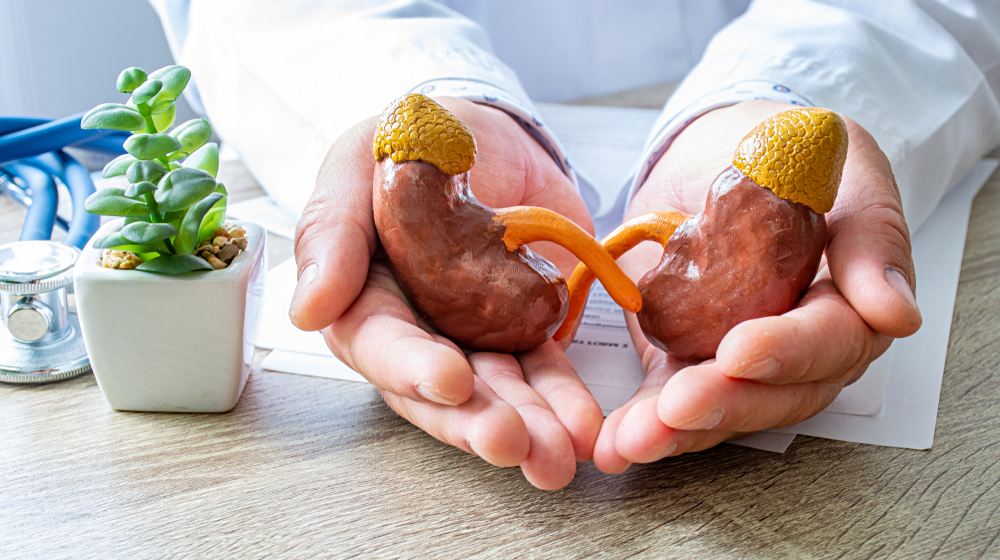Because they play an essential role in your body, signs of kidney problems could manifest within days. Here's what you need to watch out for.
RELATED: 4 Easy Ways to Get Blood Sugar Under Control
How to Tell if You Have Kidney Problems
The Function of Your Kidneys
Your kidneys always come in twos, but it may be possible to survive with just one. You can still be healthy and live a long life with one kidney.
But if one of your kidneys were removed to treat a condition, you may have to make some lifestyle changes.
Everyone knows that the kidneys filter and get rid of waste from our bodies. But it does so much more than that. Think of your kidneys as your body's processing and mineral factory. Your kidneys are in charge of:
- getting rid of toxic waste and drugs in the body
- monitoring and regulating bodily fluids
- release hormones essential in controlling blood pressure
- balances the body's stores of sodium, potassium, and calcium
- promotes the production of red blood cells in the bone marrow
- manufactures vitamin
In a nutshell, your kidneys reabsorb everything it senses your body needs (at the right balance). Then, it expels everything harmful and excessive. Because it does so much, signs of kidney problems could show up in many different ways. And on various parts of our bodies.
5 Stages of Chronic Kidney Disease
Kidney failure or disease does not have overnight. Instead, it progresses over time. So there are things we can do early on to stop it at its tracks.
The estimated Glomerular Filtration Rate (eGFR) is an estimate of how well your kidneys are functioning. It's the rate by which the glomeruli—the kidney filters—filter your blood.
eGFR at Each Stage of Chronic Kidney Disease
Through each stage of chronic kidney disease, you may see this number going lower and lower.
- 1 – Normal > 90
- 2 – 60-89 > 90 ml/min
- 3 – 30-59 ml/min
- 4 – 15-29 ml/min
- 5 – <15 ml/min
At stage 5, your kidneys shut down and no longer function.
Understand that there are many things you have to look at before you diagnose kidney failure. And different symptoms can occur at each stage.
Stage 1 Signs of Kidney Problems
Changes in Urination
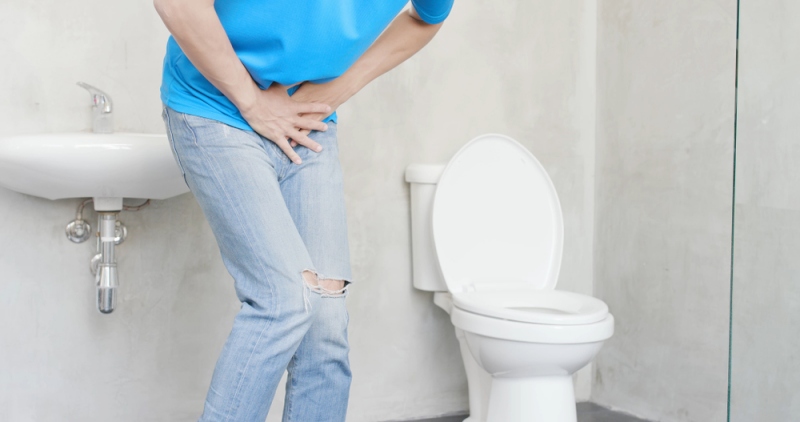
It could be difficult to see symptoms at the first stage. But one of the first signs of kidney trouble may be in your urine. At this stage, there may be protein in your urine.
You might notice a change in:
- smell
- color
- appearance (cloudiness, foam)
At this stage, you might want to visit your doctor. If you have a nephrologist (a doctor that specializes in the kidneys), book an appointment.
It may also be a sign that it's time to review your lifestyle. Even 10 minutes of exercise can do wonders for your health. And improving your diet could help manage your condition and boost your overall health.
Stage 2 Signs of Kidney Problems
Much like in stage 1, you may not experience any symptoms. Or while you do exhibit symptoms, they could be few and hard to detect. But since this is beyond the normal range, your doctor might want to get a closer look.
During stage two, your kidneys continue to function. But at this point, there may be some mild damage.
Stage 3 Signs of Kidney Problems
High Blood Pressure
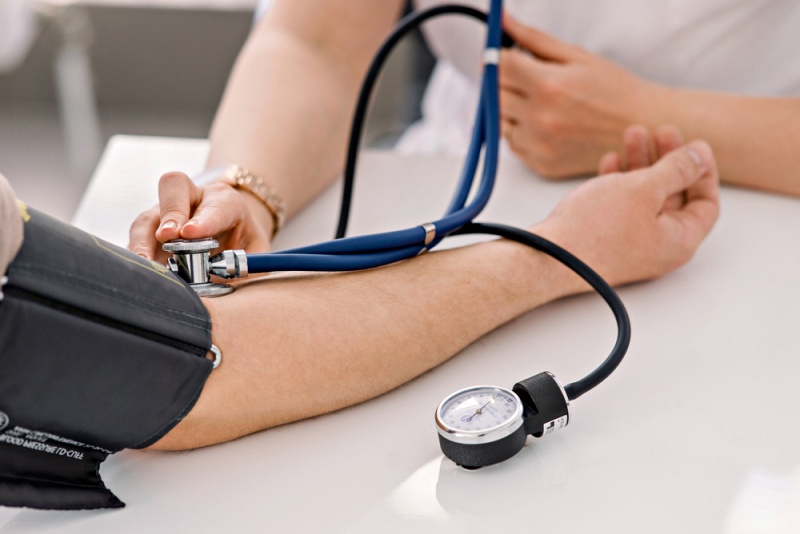
Remember that your kidneys help control your blood pressure. If there is damage to your kidney, it may not be able to control your blood pressure well.
But at the same time, it might be the high blood pressure that forces a lot of pressure on your kidneys. This pressure might hurt your kidneys and cause damage.
Anemia

Erythropoietin is a hormone your kidney creates to make your red blood cells. A damaged kidney cannot produce this hormone, which then leads to a lack of red blood cells. This results in anemia.
When you suffer from anemia, your body may not get enough oxygen. So you might experience symptoms, including:
- fatigue
- weakness
- dizziness
- shortness of breath
Bone Disease
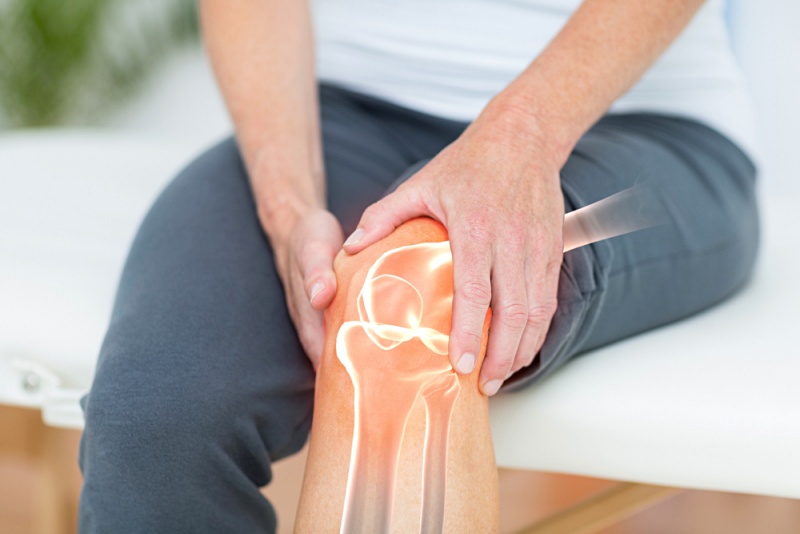
Kidney failure could contribute to osteoporosis.
Good bone health involves a good balance between phosphate and calcium. But if your kidney can't clear enough phosphate, it will make a hormone that will absorb calcium elsewhere to restore the balance. The problem is, this hormone gets calcium from your bones.
Your symptoms start to get more serious at this stage. Because your kidneys' sensors and ability to flush out waste are damaged, it could lead to many complications like high blood pressure, anemia, and bone disease.
See a nephrologist or a general physician if you don't have one yet. If you think you can relate to one of these symptoms, you don't need to wait for your annual checkup for a diagnosis.
DISCLAIMER: This article is meant to share information only. Do not take this as medical advice.
Edema
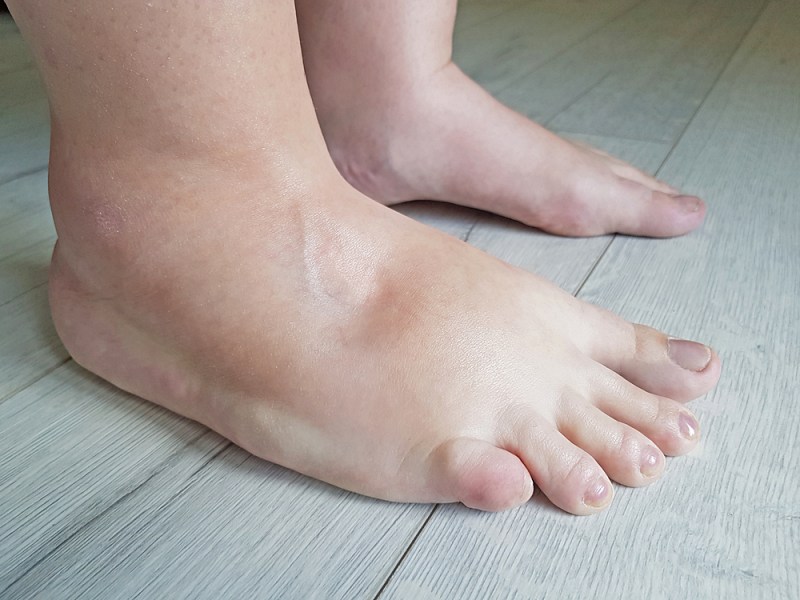
One of the more visible signs of kidney disease is edema.
Edema, or swelling, happens mainly around your hands, feet, and eyes. In fact, you can tell a lot about your health from your feet.
Albumin is a protein that regulates the amount of water in your blood vessels. When this protein drops, water could leak into your body and tissues like your hands, feet, and eyes. As the water accumulates, it begins to swell.
Back Pain

If you feel a sharp, shooting pain in your back, it might be a kidney stone.
The size of a kidney stone varies. The size could be similar to a grain of sand or comparable to a pearl. Imagine a sharp shard of glass lodged anywhere between your kidneys and bladder.
It could be especially painful if it gets stuck in the ureter—the tube connecting the kidneys and the bladder. It may choke the passage from the kidney and bladder, causing your kidney to swell.
Other symptoms of kidney stones include:
- sharp pain under the ribs
- burning sensation during urination
- urine with a red hue
- a constant need to urinate
- frequent urination
- urinating in small amounts
- nausea and vomiting
- cloudy urine
- bad odor in urine
- in men, pain at the tip of your penis
RELATED: In-Depth Look at Type 2 Diabetes Symptoms and the Effect on Men's Health
Stage 4 Signs of Kidney Problems
At this stage, your kidney is very nearly shutting down.
You may exhibit the same symptoms you do in stage 3 but to a higher degree.
Your symptoms could be more severe. Likewise, the damage and complications will also be more dangerous.
It would be difficult to reverse kidney failure at this point, so you may need to take counseling to prepare for you what's to come.
Your nephrologist may prepare you for dialysis or a kidney transplant.
Stage 5 Signs of Kidney Problems
At this stage, your kidneys no longer function or are near failure.
Trouble Breathing
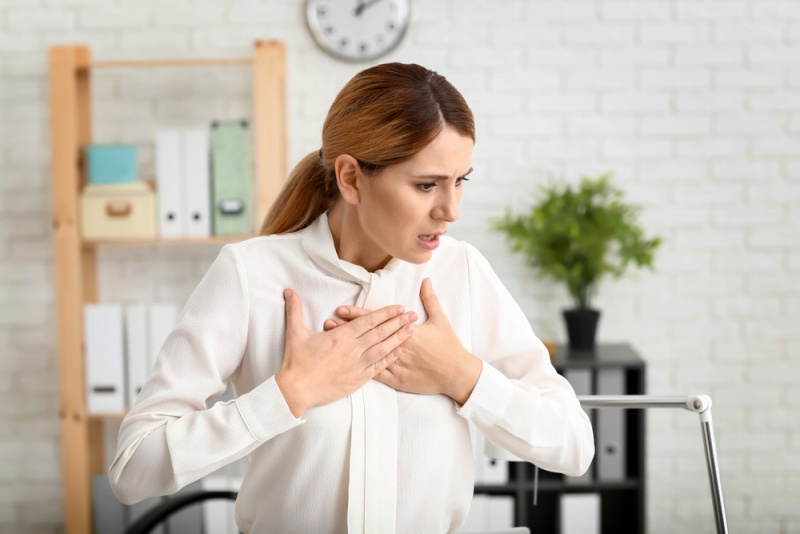
Fluids could start leaking into your lungs (chronic obstructive pulmonary disease) and, in a way, drown your lungs.
Difficulty Sleeping

Because your kidneys no longer flush out toxins, your body gets very sick. And your nervous system may feel like it's on fire.
Ammonia Breath, Metallic Taste in Mouth
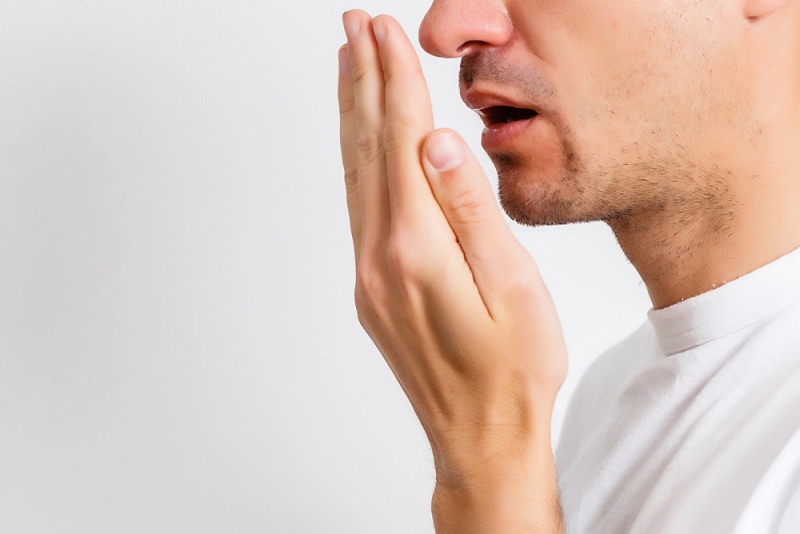
Ammonia is expelled through the urine. But with no way out, it may make it to the lungs causing bad breath.
Patients suffering from kidney failure may also experience a metallic taste in their mouths. It might also change the way food tastes, leading some sufferers to lose their appetites.
Severe Toxicity
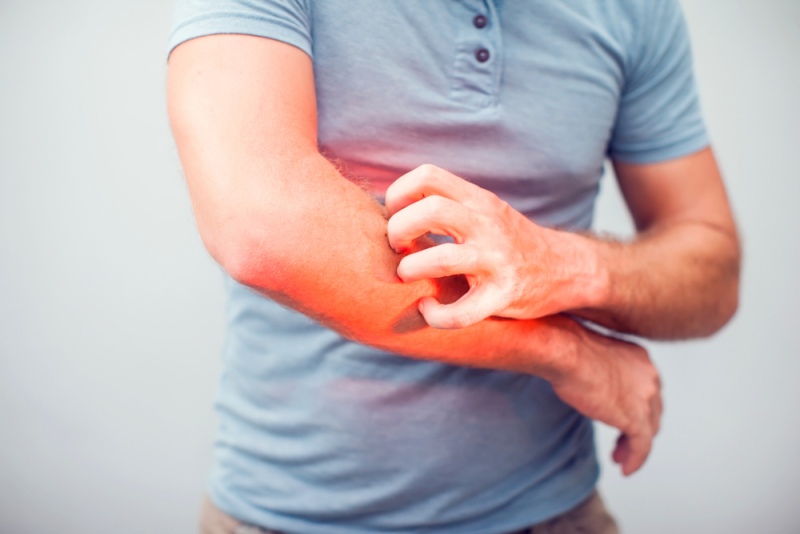
With toxins in your body stuck in your body, it might find other ways to leave.
You may experience itchiness, nausea, and vomiting. Your body may focus on trying to expel all the toxins in your body, so it might be difficult for you to consume anything. Muscle cramps may also occur due to electrolyte imbalance.
At this point, there is not much you can do to reverse chronic kidney failure.
When Should I See My Doctor?
Visit your doctor when symptoms persist. You don't need to wait for your annual check-up to do so.
A blood test and urine test can tell you about your kidney's health. Checking your blood pressure may also point to a sign of kidney problems.
How Do You Know if You Have Kidney Problems?
Kidney failure could lead to many complications, diseases—and when not caught early— death.
Type 2 diabetes is a major risk factor for kidney failure. If you suffer from diabetes, take extra special care of your kidneys.
The frightening part about kidney problems is that early symptoms are hard to detect. And sometimes, there may not be any symptoms at all.
Many people with kidney disease can still live a normal life. Although they would often need a lifestyle change to protect their kidneys.
Check out Dr. Sten Ekberg's breakdown of signs and symptoms of kidney problems to watch out for:
You have a give-and-take relationship with your kidneys. You give it care and importance (and a nutrient-dense diet), and it takes away all the harmful toxins in return.
Prevention is better than cure. If you live a healthy lifestyle and chow down on wholesome meals, your body will also take care of you.
Do you think you're due for a lifestyle change? Let us know in the comments section below.
UP NEXT:
- 9 Things Your Feet Can Tell You About Your Liver Problems
- 11 Foods Everyone with Diabetes Should Keep in Their Kitchen
- Is Your Mental Health Affected by High-Sugar Diets
Calling all Health Buffs! If you’ve got the gift of keeping healthy and sharing this knowledge through writing, Click here if you want to write for us.
Please stay connected with us on Facebook, Twitter, Instagram, and Pinterest, and make sure to join our community of healthy living and minded people here.
Trending
How to Improve Your Skin With Chlorella Algae
Hair Care Routine for Winter: Defeat Dryness and Restore Shine!
Get Updates
SIGN UP FOR OUR NEWSLETTER TODAY

How to Improve Your Skin With Chlorella Algae

Top 10 Ways To Spark Creativity

Prostate Massage | Everything You Need To Know
Related

How to Improve Your Skin With Chlorella Algae

